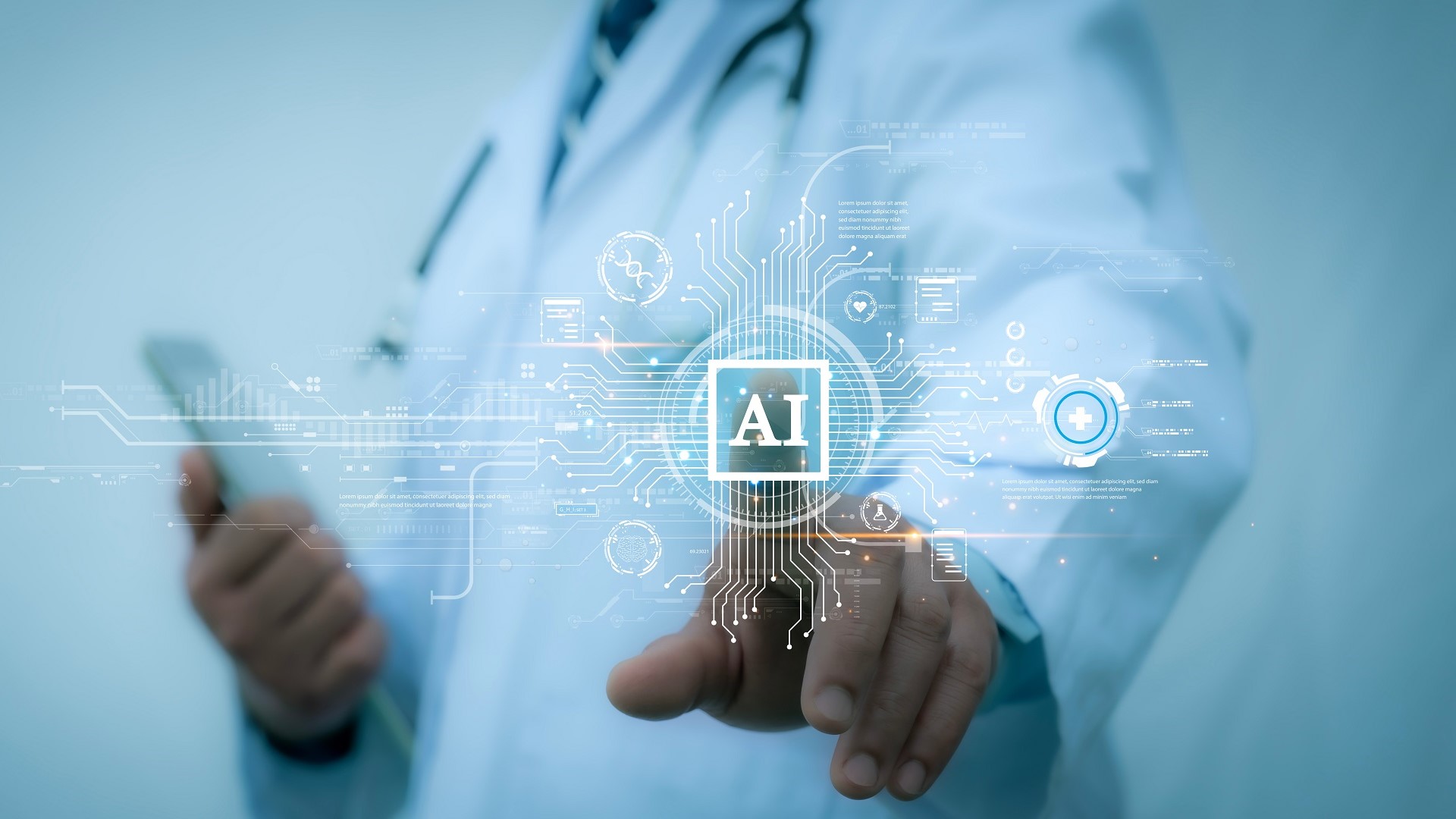Introduction
Artificial intelligence (AI) in healthcare refers to the use of AI technologies to analyze and interpret complex medical and healthcare data. In many cases, it enhances or even surpasses human abilities by offering faster, more accurate methods for diagnosing, treating, and preventing diseases.
Healthcare AI systems can analyze patterns in a patient’s medical history and current health data to predict potential health risks. By leveraging this predictive capability, healthcare providers can deliver proactive and preventive care. As a result, patient outcomes improve, and healthcare costs decrease.
AI algorithms can automate administrative tasks, prioritize patient needs, and improve communication within healthcare teams. As a result, healthcare providers can dedicate more time to direct patient care while ensuring efficient and well-coordinated service delivery.
Artificial intelligence enhances diagnostic capabilities in underserved countries. This progress is supported by technology companies like SpaceX and the Raspberry Pi Foundation, which expand access to computers and the internet, enabling broader adoption of AI solutions.
In this article we will delve into how AI is impacting the future of medical innovation:
Applications in healthcare systems:
Disease diagnosis
Accurate and early disease diagnosis remains a significant challenge in healthcare. Identifying medical conditions and their symptoms is a complex task. However, AI can support clinicians by leveraging its advanced data processing capabilities, saving time and enhancing diagnostic accuracy.
By leveraging machine learning, artificial intelligence can significantly assist doctors in diagnosing patients through the analysis of vast electronic health records (EHRs). For instance, AI can enable early prediction of conditions like Alzheimer’s disease and dementia by examining large datasets of similar cases and potential treatments.
Electronic health records
Electronic health records (EHRs) are essential in the healthcare industry. AI algorithms analyze individual patient records to predict disease risks by evaluating personal and family medical history. Like human flowcharts, these algorithms establish rules that link specific observations to potential diagnoses, saving time and highlighting critical issues.
Drug interactions
Artificial intelligence algorithms now identify drug-drug interactions in medical literature, a significant concern for patients taking multiple medications at once. Machine learning algorithms extract details about interacting drugs and their potential effects from these sources. In 2013, the DDIExtraction Challenge—a standardized test for such algorithms—evaluated their ability to determine which drugs interact and the nature of those interactions.
Telemedicine
The rise of telemedicine has showcased the potential of AI in remote patient care. AI can monitor patient data through sensors, enabling wearable devices to detect subtle changes that humans might miss. By comparing this data with existing information using AI algorithms, physicians can receive alerts about potential issues. However, AI applications like chat-bot therapy face criticism, particularly in mental healthcare, for lacking reciprocity and accountability.
Read The Influence of Artificial Intelligence on Business & Healthcare in 2025!
Clinical applications:
Cardiovascular
Artificial intelligence (AI) algorithms show promise in diagnosing and risk-stratifying patients with coronary artery disease. They can predict mortality, medication effects, and adverse events effectively. Wearables, smartphones, and internet-based technologies also enable continuous monitoring of cardiac data, potentially allowing earlier detection of cardiac events outside hospitals. Additionally, AI aids in classifying heart sounds and diagnosing valvular disease. However, challenges remain, such as limited data availability for training machine learning models, including social determinants of health.
Dermatology
Medical imaging, such as X-rays and photography, is widely used in dermatology, and deep learning has advanced image processing capabilities. Machine learning shows potential for improving diagnostic accuracy by analyzing images. For example, studies demonstrate its ability to detect keratinocytic skin cancer from facial photographs and classify skin cancer from lesion images at a level comparable to dermatologists. However, concerns persist about its failure to address disparities related to skin color or the differential treatment of patients with non-white skin tones.
Gastroenterology
AI can significantly enhance gastroenterology by enhancing endoscopic procedures like esophagogastroduodenoscopies and colonoscopies, enabling quicker disease identification and severity determination. Early trials have shown sensitivity similar to expert endoscopists. AI can also help doctors treat ulcerative colitis by detecting microscopic disease activity and predicting flare-ups. An AI-powered tool can distinguish between samples with remission of colitis and those with active disease, and predict flare-up risk with similar accuracy, similar to the accuracy of pathologists.
Obstetrics and gynaecology
Artificial intelligence utilises massive amounts of data to help with predicting illness, prevention, and diagnosis, as well as patient monitoring. In obstetrics, artificial intelligence is utilized in magnetic resonance imaging, ultrasound, and foetal cardiotocography. AI contributes in the resolution of a variety of obstetrical diagnostic issues.
Conclusion
The increasing amount of medical data, including clinical, genomic, and imaging data, is expected to accelerate as precision and personalization in medicine mature. This trend is leading to a more data-dependent future in medicine, with medical schools strengthening their technology curricula. AI will analyze vast amounts of data, assisting physicians in analyzing patient records and improving the human touch. While AI is unlikely to replace physicians, medical professionals must learn AI technology and its benefits.
 Nonhlanhla Ndlovu
As a dedicated multimedia journalist with a journalism qualification and extensive experience at Independent Media, I am passionate about crafting impactful stories that inform, engage, and inspire. My career has spanned prominent roles at The Star, Pretoria News, and Independent Media, where I developed a reputation for delivering high-quality, accurate, and engaging content across diverse platforms.
LinkedIn
Muck Rack
Nonhlanhla Ndlovu
As a dedicated multimedia journalist with a journalism qualification and extensive experience at Independent Media, I am passionate about crafting impactful stories that inform, engage, and inspire. My career has spanned prominent roles at The Star, Pretoria News, and Independent Media, where I developed a reputation for delivering high-quality, accurate, and engaging content across diverse platforms.
LinkedIn
Muck Rack
